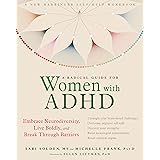Homeschooling a child with special needs might leave you feeling unsure if you are doing enough. You want to make sure your child is learning enough, but you also don’t want to overwhelm them with too much at once. Thinking about what skills your child needs to develop is one way to start planning a curriculum. You might also want to consider fun ways to develop cognitive skills, so your child enjoys learning and looks forward to schooling every day.
Teach What They’re Ready To Learn
One of the best tips for homeschooling a child with special needs is teaching a curriculum that they are ready to learn. The best way to know what your child is ready to learn is by having them take an assessment test. The MAP Growth test, for example, is an online and untimed test that adjusts the questions based on what your child answers correctly. The MAP Growth test can test students in reading and math, with the option to add on science and language.
After taking the test, you will receive a score report of how your child tested. Understanding the results of MAP Growth ensures that you know what your child is ready to learn, so you can feel confident with the curriculum you’re teaching. The MAP Growth Assessment is a great option for a child with special needs because it’s an at-home adaptive test, so your child can be comfortable and confident while taking the test. There are also accommodations for children with special needs.
Develop Cognitive Skills
Another one of the tips for homeschooling a child with special needs is incorporating ways to further develop their cognitive skills. Some cognitive skills include memory and concentration. There are many fun ways to incorporate cognitive development into the curriculum that your child will enjoy. For example, singing with your child will promote memory in a way that is fun for you and them. You can sing songs together during school or at any time of the day. Choosing songs that they enjoy from their favorite movie soundtrack or band is an easy way to encourage them to enjoy this activity daily.
Another way to develop your child’s cognitive skills is to practice counting. This is an activity that can be easily incorporated into daily life. You can have your child count how many chips they eat during lunch, how many birds they see out the window, or how many pairs of socks they have in the drawer. These are fun ways to incorporate counting into your day that doesn’t necessarily feel like learning, because it’s more of a conversation and activity, as opposed to a lesson or assignment.
Incorporate Movement
Lastly, it’s a good idea to incorporate some movement into your day to get your child up and moving. Movement is important to brain health and it is beneficial to cognitive development. For example, starting the day with stretching or taking a break mid-day for some dancing are great ways to get up and start moving. Not only will your child have fun doing this, but it will help them get ready to concentrate for the day by allowing them to get the jitters out. Sitting and concentrating for too long does a number on anyone, which is why movement is something many people incorporate into their day.






